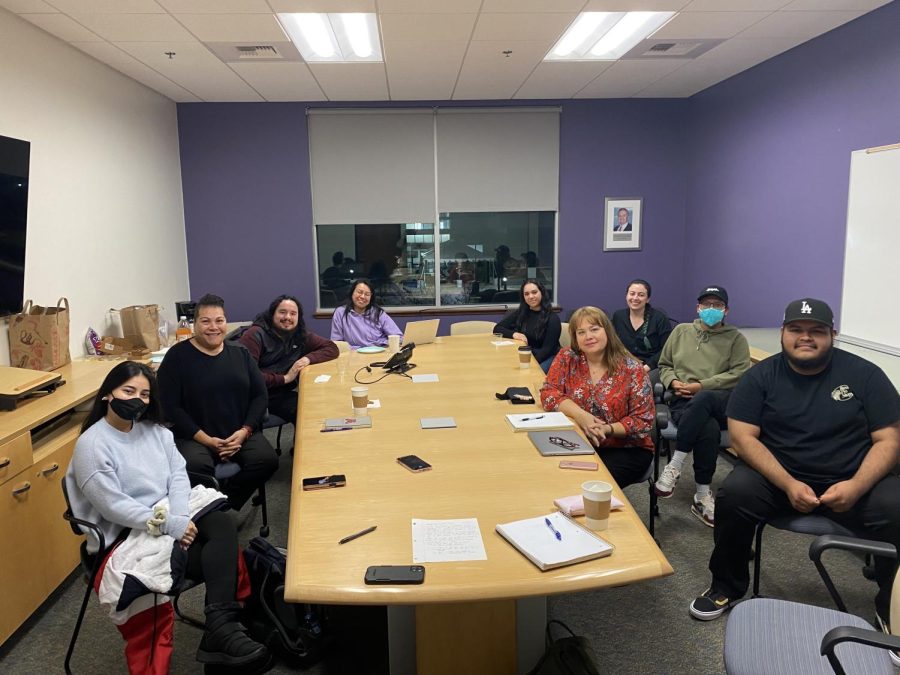‘I proved her wrong’: navigating the American higher education system
Guest speakers Alexandra Chocontá and Daniel Hernandez spoke with Cal Lutheran students about the trials and tribulations of applying to grad schools as Colombians.
November 15, 2022
California Lutheran University is a designated Hispanic Serving Institution, signifying the university’s high enrollment rates for Latinx students. Historically, HSIs prioritize initiatives that help marginalized students in their educational pursuits.
In order to provide support for Latinx and Hispanic students, Cal Lutheran’s Director of Ethnic and Race Studies Lorena Munoz hosted “Navigating US graduate school as a Colombian” with guest speakers Daniel Hernandez and Alexandra Chocontá. Currently, both are working toward their doctorates at the University of Minnesota.
They lectured about their experience as first-generation students navigating the American education system.
“One of the main barriers that I found throughout school is the language barrier,” Chocontá said. “In Colombia, speaking English is just for privileged people and I don’t come from a privileged family. Neither my mom nor my dad went to high school or college…they didn’t understand how the academic world functioned, so I had to figure it all out on my own.”
Chocontá said that despite the language barriers, she was grateful for the opportunity to attend grad school because it helped her better understand her identity as a Latin woman in Colombia and the United States.
Chocontá’s revelation about identity brought up conversation about imposter syndrome. Department Chair of the Language and Cultures and professor of Spanish and Latin American Studies Rafaela Fiore Urizar said she struggled with imposter syndrome during grad school and at work. All the lecturers agreed that the feeling never went away, it was just something they had to learn to cope with.
“The moment you open your mouth, your color comes out,” Fiore Urizar said. “It took me several years to assert myself with my colleagues, even at Cal Lu.”
Many of the doctorate students agreed that in order to overcome imposter syndrome, they had to grow their confidence by working hard in school. Chocontá has done research projects with Munoz in the past, and, currently, Hernandez and Munoz have an international research project on street vending in relation to immigrants from different parts of Latin America and Spain.
“We have data that we’ve collected since 2015…the project has grown and it’s very exciting,” Munoz said.
In addition to his research, Hernandez said that an overarching theme in grad school was the struggle to understand English in academic writing. He also said switching from Spanish to English is more difficult in the context of academics.
Fiore Urizar agreed with Hernandez that the language structure of English is vastly different from Spanish. The Spanish language uses lots of descriptive words while English is straight to the point, Hernandez said.
“The way that American papers are structured is called the martini glass, you have the big opening, thesis statement, introduction, and the three arguments you want to make, then you have the conclusion. It is such a standardized way of writing,” Fiore Urizar said. “While in the case of Latin America, the way that we write is like this; we go around and around and around, and finally make it to the point. This is a cultural issue, but unfortunately in many schools they want to take this away from us. By taking away this from us they are taking away part of our culture and creativity.”
Fiore Urizar and Hernandez shared similar experiences in regard to their peers’ and families’ cynicism towards furthering their education, both having faced criticism when it came to pursuing a college degree.
“I had a professor tell me that I would not succeed in higher education,” Fiore Urizar said. “I proved her wrong.”
Munoz said that students who want to learn more about applying to grad school should continue to attend presentations to better understand their academic goals.




















